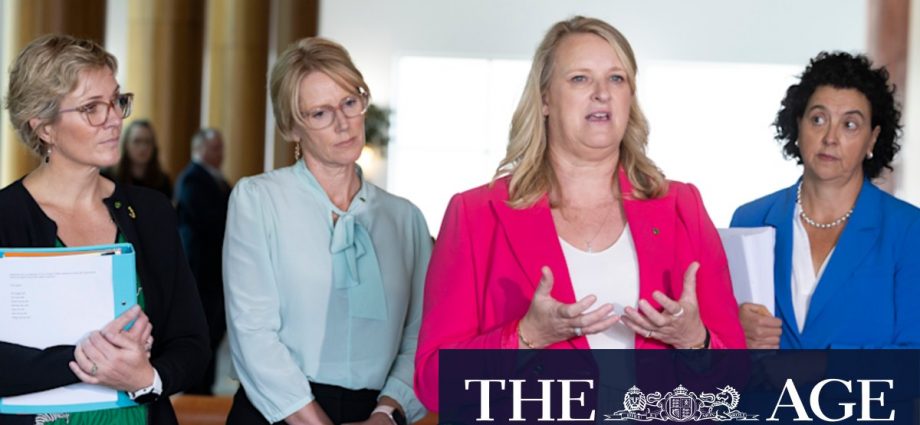A CIP spokesman said it did not fund Tink’s travel to campaign in Queensland and that the donations it received were not used “for the purposes of electing candidates”.
A spokeswoman for the AEC said it was “aware of, and actively monitoring, the activities of the CIP”.
Loading
Asked if it was in recent contact with the CIP to warn of the rules to disclose political spending, the spokeswoman said: “Yes, we are in contact with CIP in relation to potential disclosure obligations. We address issues and concerns directly with entities and don’t discuss these considerations more broadly.”
The opposition’s scrutiny of the CIP intensifies the political contest between the teal movement and the Coalition, which will struggle to win elections unless it takes back some of the seven previously safe seats it lost to independents. Conservatives argue that the independents operate as a quasi political party with a sophisticated national structure that generates new candidates in seats deemed winnable. This claim is rejected by Climate 200 founder Simon Holmes a Court and the MPs.
This masthead reported last month that Climate 200-supported MPs were irritated when Holmes a Court delivered a National Press Club speech naming target seats, revealing polling and talking about support for new candidates – functions usually performed by political parties.
Another teal MP, Allegra Spender, is separately facing scrutiny for paying social media influencer Milly Rose Bannister to post videos about the Wentworth MP’s campaign. Spender defended the practice, saying the media landscape had changed.

The Member for Wentworth, Allegra Spender.Credit: Alex Ellinghausen
“We’ve worked with an agency and a bunch of influencers and content creators to reach different audiences,” she told the ABC.
Kooyong MP Monique Ryan could not say on ABC’s Insiders on Sunday whether MPs should disclose if they are paying for favourable coverage.
Cash’s letter sent on April 4 stated: “Noting [the CIP’s objective to help elect candidates], and the fact the company solicits donations directly from the public, it is reasonable to conclude that the organisation may have incurred electoral expenditure.
“This could include but not be limited to any payment to staff of the CIP that formed part of the production or distribution of electoral matter, including social media posts.”
The legislative definition of electoral matter that must be disclosed to the AEC is material related to the election, or an MP, communicated with the dominant purpose of “influencing the way electors vote in a federal election”.
The ABC reported in January that the CIP was a key part of a “sophisticated ecosystem” of groups providing comprehensive support to the candidates funded by Climate 200. The report stated groups including the CIP worked with communities from the “very early stages” to teach campaign tools, before a Voices group is “established under the CIP banner”.
The CIP disputed the ABC report and said that Voices groups were run “organically and independently by communities”.


